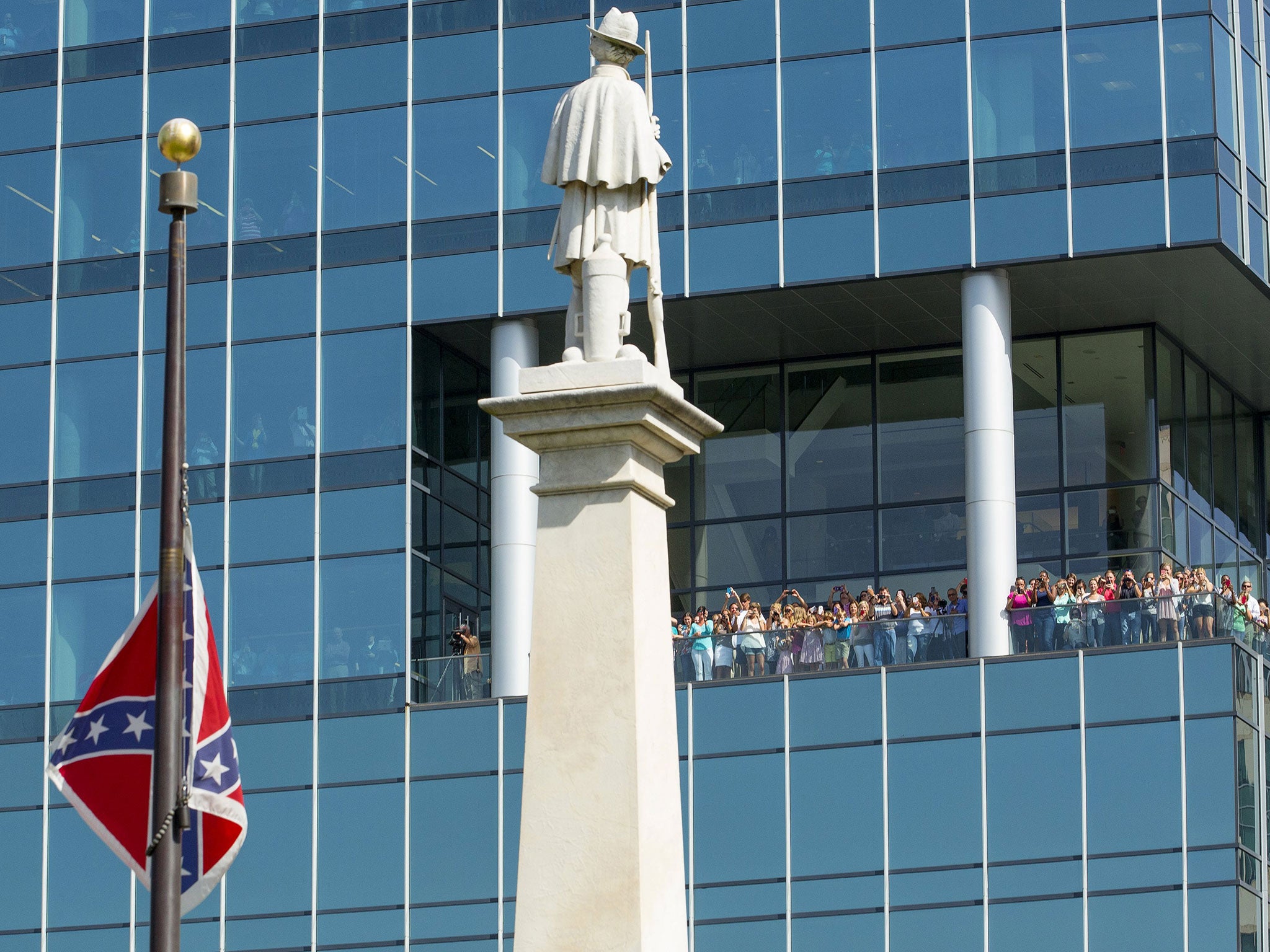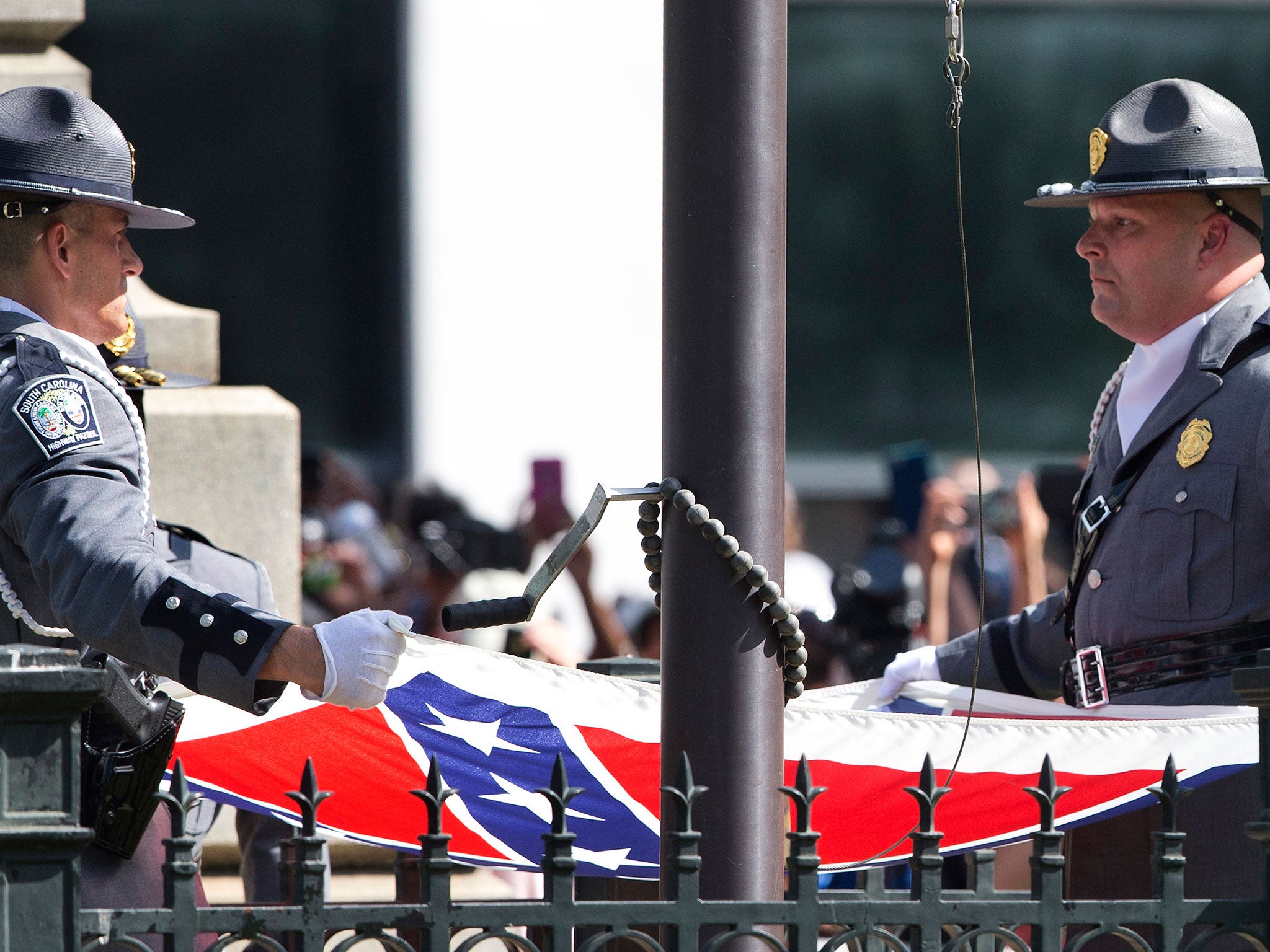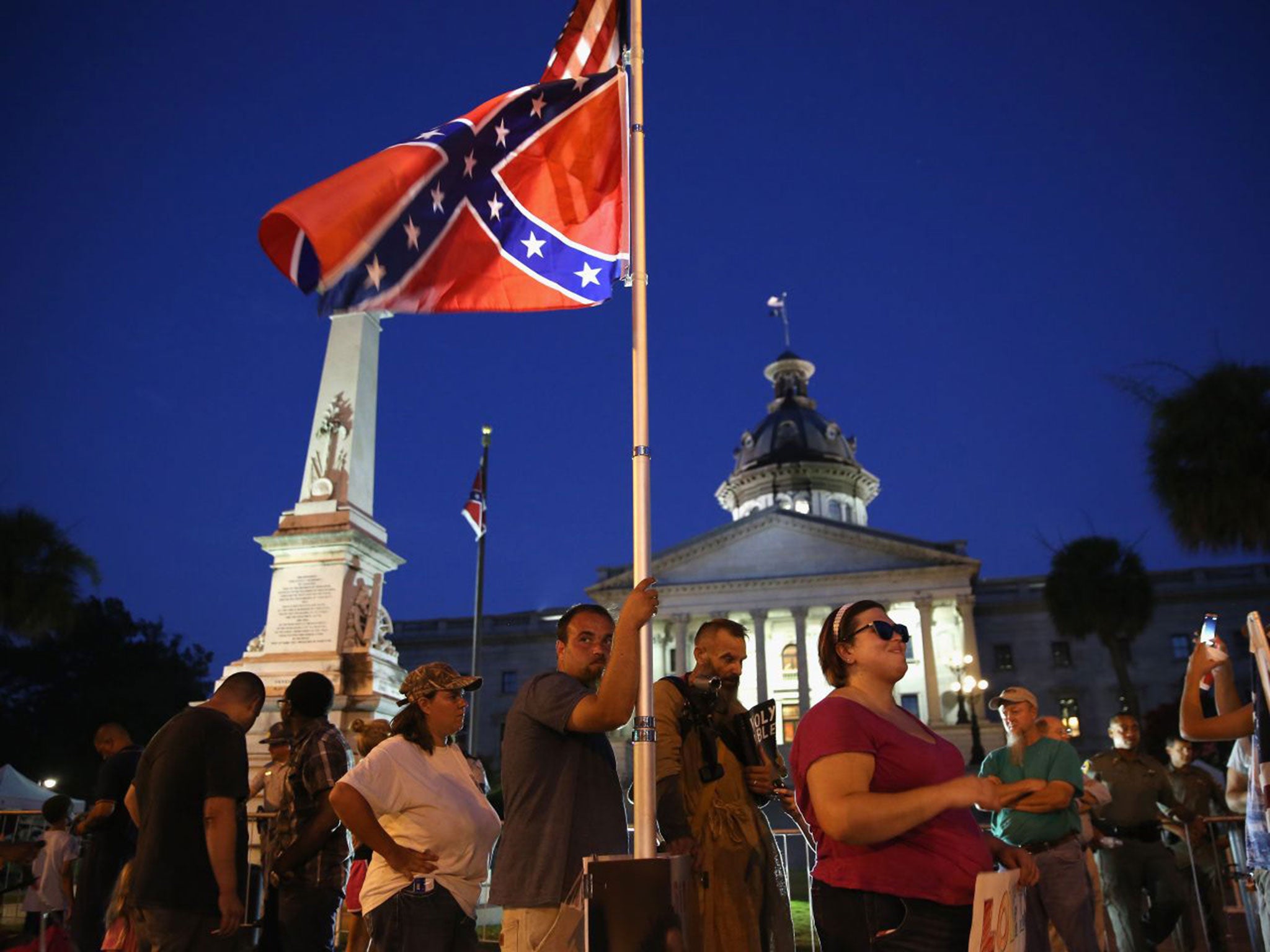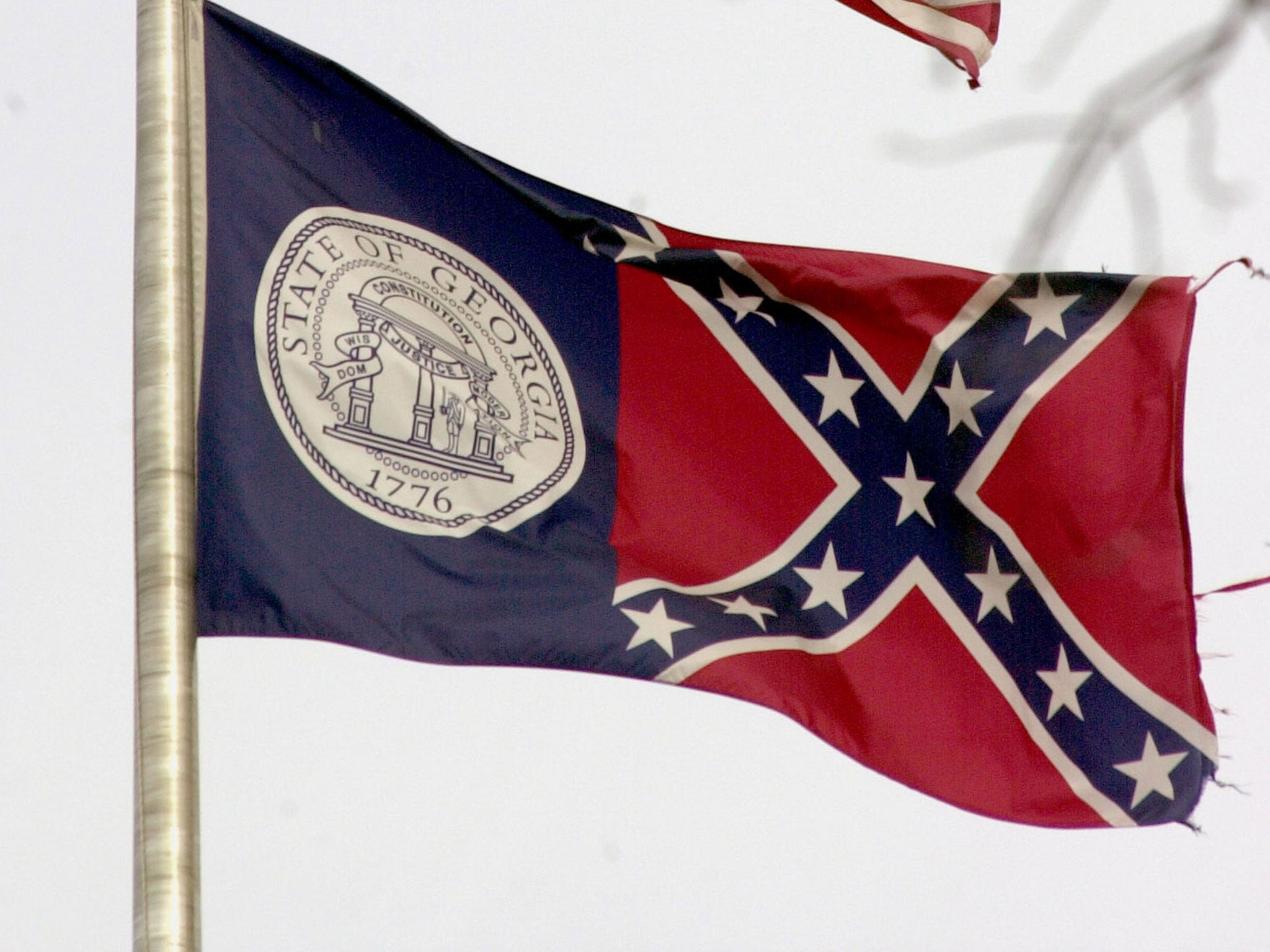The Confederate flag may be gone in South Carolina, but will the South ever get rid of it entirely?
The region is full of monuments to key players in the Confederacy and even the Ku Klux Klan

The Confederate battle flag no longer flies at South Carolina's Statehouse, now relegated to a room filled with other relics of the state's secession. Other vestiges of the Civil War-era South are unlikely to vanish so soon.
Several states have taken or are considering action to remove the flag and other Confederate symbols and monuments since the massacre of nine people at a Bible study inside a black church; police have charged a man shown in pictures with the flag who they say was motivated by hate. It has been banished from Alabama's Capitol and federal cemeteries, and Memphis officials are working to move the remains and a statue of slave trader and Confederate Gen. Nathan Bedford Forrest out of a prominent park.
Still, the region is full of monuments to key players in the Confederacy and even the Ku Klux Klan. Confederate flags remain a common sight on licence plates in the South, and the flag is a part of Mississippi's own state flag. Georgia's state flag is based on the national flag of the Confederacy known as the stars and bars.

The response in South Carolina and other states is encouraging after 15 years of no activity but was prompted only by a "massacre," said Mark Potok, a senior fellow at the Southern Poverty Law Center.
"We need a kind of mental cleansing down here," Potok said. "It's 150 years overdue."
Large numbers of flag supporters, who say it symbolizes Southern heritage and history, remain. North Carolina sold out of its version of Confederate license plates when Gov. Pat McCrory said the state should stop selling them; no action has been taken yet to halt the sales. Sons of Confederate Veterans groups in states including Georgia and Virginia have pledged to fight to keep them.
Chad Haden, 34, of Braxton, Mississippi, said many flags have flown for nations that allowed slavery, including the US flag. Haden said one of his ancestors fought for the Confederacy, and he does not want to see Mississippi's flag change any more than he wanted the battle flag in South Carolina to come down.
"I've got to question the motive of it, of why they come after us? It's like they're trying to take one bad thing from us, slavery, and they ignore the progress that was made before the war. They try to make us the villain. I've got a question: Is it just a hatred of Southerners?"

Top Republicans in Mississippi, including the House speaker and both U.S. Senators, have pushed to follow South Carolina's lead, though Gov. Phil Bryant has said he won't call a special session to consider removing the battle flag from the state flag. He has pointed to a 2001 vote where supporters of the flag outnumbered opponents 2-to-1.
Bryant, his lieutenant governor and every member of the legislature are up for re-election this fall. Derrick Johnson, president of the Mississippi NAACP, has called on Bryant to bring about change.
"It's time to write the next chapter of our history," he said Thursday.
Georgia's state flag long resembled the Confederate stars and bars until 1956, when the design prominently incorporated the battle flag design removed from South Carolina. That was widely believed to be a protest to the Supreme Court decision in Brown v. Board of Education that ordered the desegregation of schools.

In 2001, Democratic Gov. Roy Barnes signed a law ordering a new flag that prominently featured the state seal against a blue background; much smaller images of the older, Confederate-inspired flags of the past were shown beneath, above the words "In God We Trust." That design lasted only until 2003, when Barnes lost re-election and his Republican successor signed a bill into law restoring the stars and bars-inspired design.
Other efforts to change the flag failed, including in 1993 when then-Gov. Zell Miller called the rebel emblem "the Confederacy's most inflammatory symbol."
Democratic state Sen. Vincent Fort, who is black, plans to introduce legislation to end Georgia's commemoration ofConfederate holidays, which are commonly observed by governments in the Deep South. However, many of his Republican counterparts in the Republican-dominated legislature and the governor have shown little appetite for taking up such issues.
"We will take our first bite at the elephant, and digest it one bite at a time," Fort said last month.
In South Carolina, Gov. Nikki Haley made it a priority for lawmakers to pass legislation to take the flag down, reversing course from her 2014 campaign trail dismissal of Democratic challenger Vincent Sheheen's call for its removal as a campaign stunt.
On Friday, she told NBC's "Today" show it was crucial to remove a symbol considered an emblem of slavery by many, saying "no one should ever drive by the Statehouse and feel pain."
Thousands watched an honor guard lower the flag and roll it up to be carried to the nearby Confederate Relic Room and Military Museum, chanting "USA!" and singing "hey, hey, hey, goodbye." Jubilant supporters of taking the flag down vastly outnumbered those who hoped it would remain, and the daughter of one of the women killed at the Charleston church struck an optimistic note.
AP
Join our commenting forum
Join thought-provoking conversations, follow other Independent readers and see their replies
Comments
Bookmark popover
Removed from bookmarks